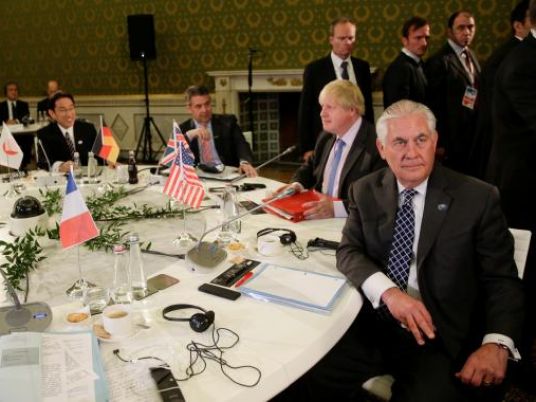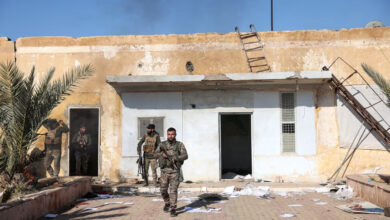
Foreign ministers from Group of Seven (G7) major industrialized nations reached no agreement on a British suggestion that sanctions be tightened against Syria and Russia, Italy's foreign minister said on Tuesday.
British Foreign Secretary Boris Johnson had said ahead of the two-day G7 meeting that he wanted to discuss imposing fresh sanctions over last week's alleged chemical weapons attack in a rebel-held area by Syrian President Bashar al-Assad's air force.
Western countries blame Assad for the attack, which killed 87 people. He has denied involvement and Russia, which is backing the Damascus government in its six-year-old war with rebels, has stood firmly by its ally.
Italy, which hosted the G7 gathering in Tuscany, said the idea did not win broad support. "There is no consensus at this time for new sanctions as an efficient method to reach our goal," Foreign Minister Angelino Alfano told reporters.
"There are obviously different opinions, and I am referring to my colleague Boris Johnson, who raised the issue," he said, adding: "The position of the G7 is very clear. We support the sanctions that have already been introduced."
Italian officials estimate that sanctions imposed on Russia after its 2014 annexation of Crimea have cost Italy some €4 billion in lost business, and Rome has pushed back on previous attempts to impose fresh penalties on Moscow.
Alfano said the G7 did not want to put Russia in a corner, but rather sought a constructive relationship with Moscow.
French Foreign Minister Jean-Marc Ayrault suggested the question was given little attention by Johnson's counterparts from the United States, Germany, Canada, Italy, France and Japan. "The question wasn't mentioned by anyone, except Boris Johnson, but we didn't talk about it any further," Ayrault said.
However, speaking later to British television, Johnson said there had been an agreement on support for further sanctions if evidence can be gathered against those involved in last week's poison gas attack on a rebel Syrian town that killed 87 people.
Johnson said Britain and its European partners would await the outcome of an investigation by the Organization for the Prohibition of Chemical Weapons (OPCW).
"There was a very wide measure of agreement last night that … if we can show complicity by those Russian officers who are helping the Syrian military operation, then they should also be sanctionable as well," he told the BBC.
Johnson also said there was no evidence that Russia knew of plans for a gas attack.
"Did they know that Assad was going to unleash chemical weapons? We have no evidence for that, we don’t know whether the Russians were involved at all," Johnson told Sky News.
"It may very well be that they [Russia] have simply been betrayed by their client, by the guy they have been backing."




